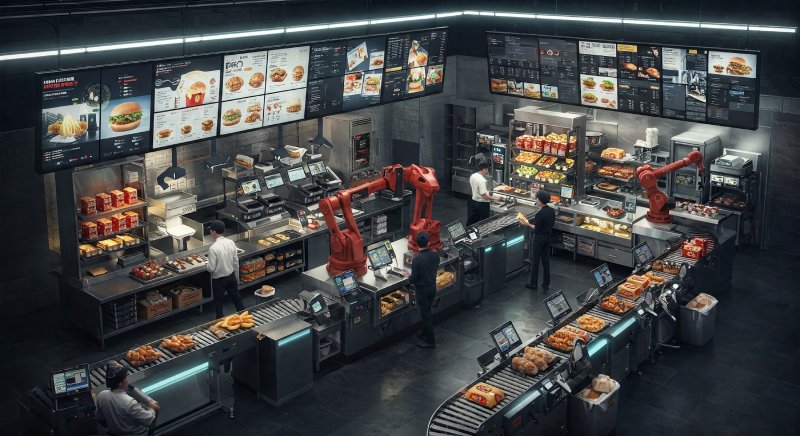What happens when a financial error in a local fast-food franchise leads to missed payroll, supply shortages, or even closures? In an era when small financial missteps can ripple across entire communities, the stability of everyday businesses like restaurants and retail chains depends on more than just good food or foot traffic—it hinged on financial accuracy, data-driven decisions, and scalable systems that ensured resilience.
This was the space where Sidharth Choudhary thrived. As Project Manager at Clear River Investments between September 2022 and October 2023, Sidharth managed the financial operations behind 45 Papa John’s and 62 Wendy’s locations—a portfolio that generated over $100 million in annual revenue. But more than just balancing books, his innovations in financial data systems helped preserve jobs, ensure regulatory compliance, and guide strategic decisions that impacted thousands of workers and customers.
“In today’s fast-paced business environment, financial oversight and operational efficiency are the backbone of success,” Sidharth said. “Whether managing multi-million-dollar portfolios or coordinating reporting teams, I focused on creating scalable, data-driven solutions that drive long-term stability and growth.”
The stakes couldn’t have been higher. Franchises, especially in food service, operate on razor-thin margins. A single reporting error could cascade into shipment delays, vendor issues, or unexpected costs. At Clear River, Sidharth not only supervised a team of accountants handling daily data entry and bookkeeping—he rebuilt the entire reporting framework to reduce error rates by 20%, using PowerBI and custom financial dashboards that improved transparency across departments.
These weren’t just technical upgrades. They were structural interventions with real human consequences. More accurate forecasting meant franchises could anticipate market shifts, order supplies strategically, and avoid overstaffing or understaffing. “Our improvements directly affected cash flow stability,” Sidharth explained. “That stability translated to job security for restaurant staff and continued service for the communities these restaurants serve.”
Clear River’s portfolio wasn’t just large; it was complex. The variety of franchise locations, each with its own overheads, staffing patterns, and local regulations, demanded rigorous financial discipline. By redesigning the financial reporting structure, Sidharth introduced a level of clarity that hadn’t existed before. Senior executives took notice, and his framework was adopted across multiple departments—from investments to compliance—setting a new internal benchmark for financial integrity.
His innovations also made Clear River more agile in the face of unexpected events. When inflation surged and supply chains buckled in the aftermath of the pandemic, the company’s enhanced reporting systems allowed leadership to make faster decisions about pricing, sourcing, and payroll adjustments. That responsiveness, Sidharth believed, was what allowed many of the franchise locations to weather economic volatility while competitors struggled.
The ripple effect of his work extended far beyond the spreadsheet. For every franchise that stayed open thanks to these efficiencies, dozens of employees continued to receive paychecks. Communities retained access to affordable meals. Vendors, delivery drivers, and maintenance teams—all part of the broader ecosystem—saw fewer disruptions.
“When you improve financial processes, you’re not just solving for numbers,” Sidharth said. “You’re safeguarding livelihoods.”
That mindset was also what set Sidharth apart from peers with similar titles. His role at Clear River went far beyond traditional project management. While most would limit their involvement to ensuring financial records were correct, Sidharth proactively designed tools that aligned data reporting with strategic planning. His financial dashboards didn’t just reflect past performance—they anticipated risks, highlighted trends, and offered actionable insights.
“We went from being reactive to proactive. That shift saved money and built resilience,” he noted.
The long-term impact was visible within Clear River and beyond. His work was referenced in internal training modules, preparing the next generation of financial analysts to think more strategically about their roles. Other departments adapted his dashboards to manage investment portfolios, and there was growing interest in deploying similar systems to newer franchise acquisitions.
As industries across the board embrace digital transformation, Sidharth’s work provided a roadmap for how financial innovation could drive community resilience. In a business landscape defined by uncertainty, his systems offered clarity—and his approach offered continuity.
“I saw financial operations as more than back-end work,” he said. “It was the infrastructure that supported businesses, protected people, and kept the economy flowing.”
In helping franchises thrive, employees stay secure, and communities remain served, Sidharth Choudhary wasn’t just managing money. He was building stability at scale.
- Revamping Rapid Delivery: How eCommerce’s Fast Delivery Got Even Faster - April 5, 2025
- Can Going Paperless in MedTech Actually Save Lives? - April 5, 2025
- When Roads Fail, Who Prevents the Next Accident? - April 5, 2025





